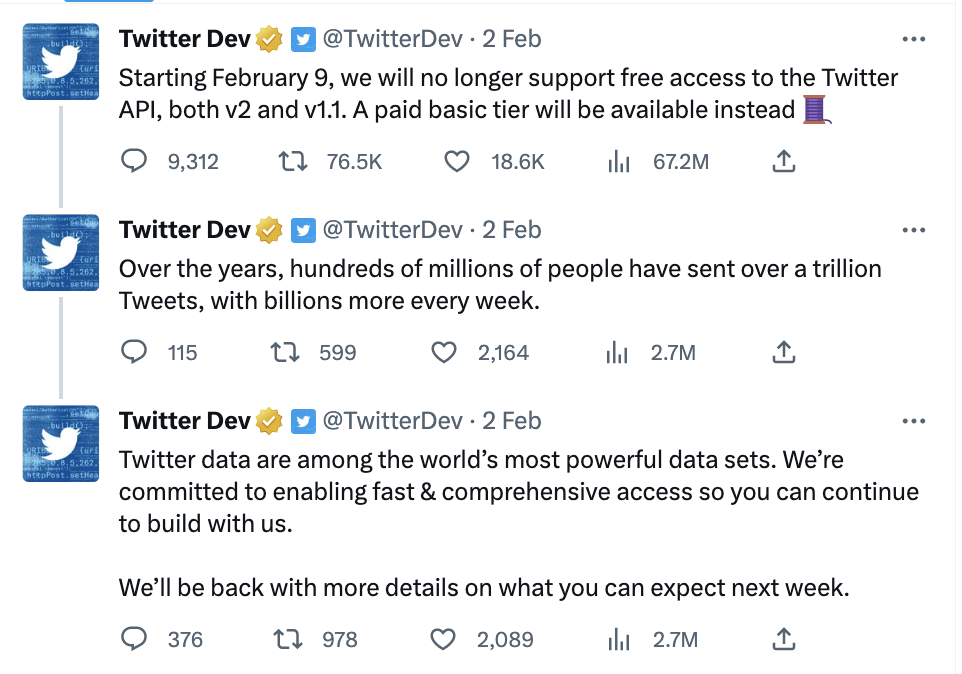Happiness and Social Media
It is the turn of the Washington Post to discuss whether people are happier after leaving social media. As with every other article I have skimmed on the topic it discusses addiction and more without discussing the reason for which social media might be bad for one’s mental health.
Remember that social networks, discussion groups, and collaborating with people in different rooms, countries, timezones is normal, and has been for decades. What makes social media different from other social networks is that social media is algorithm and profit driven, rather than community centric.
As I skim through this article I see discussions about self-perception, bullying behaviour and more. What I see is not a commentary about social media, but rather a commentary on the cruelty of normal people on the social web. As I like to say, the problem with social media is that the bullies we used to spend time on the web to avoid, have made their way onto the web. The web is now as unpleasant as meat space, as some called it.
The article discusses body image and instagram but there’s something that people forget, or never experienced. Instagram was a photo sharing app, between friends and friends of friends. We didn’t share images of ourselves, or if we did it was because we were at events together. Seesmeetups and tweetups were events where we would have photos of ourselves, with others. If we posted images to instagram they were of landscapes, travel and more, not individuals. Body image didn’t even come into it for us.
I left Myspace because the community left, I left Jaiku because it shut down. I left Google+ because it shut down. I left Facebook because it became filled with adverts and reminded me of the life I wanted but didn’t have. I left Instagram for almost the same reason, but also because I was seeing adverts, without feeling human connections with humans, anymore.
I left Twitter for political reasons. I don’t like what Musk stands for, but I also hate what he is doing to the platform.
People love to speak about social media as if it was addictive, and as if it was bad for mental health. They are missing the point. The point is not whether social media is healthy or unhealthy, because at the end of the day it’s just people socialising. If they were in a bar or pub we’d think nothing of it. If they were on a balcony or in a garden we’d see them as just socialising. People have lost sight that social media is a group of friends socialising.
They think that social media is about likes, views, about re-shares and more. It isn’t. It shouldn’t be. Social media is a network of friends of friends, and to leave the network is to leave behind that network of networks.
Twitter, Facebook and Instagram destroyed that network of networks, and now they’re trying to fix what they broke, whilst blaming what they broke on personal weaknesses, like addiction. Being social, as I have said for decades, online, is not addiction. It’s normal socialising via a different medium.









